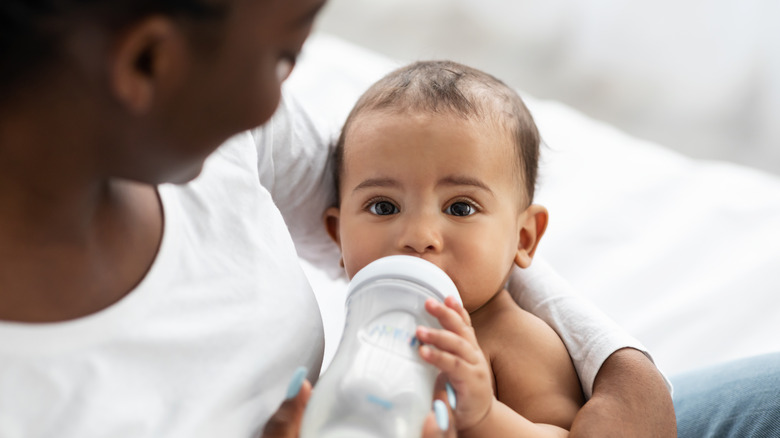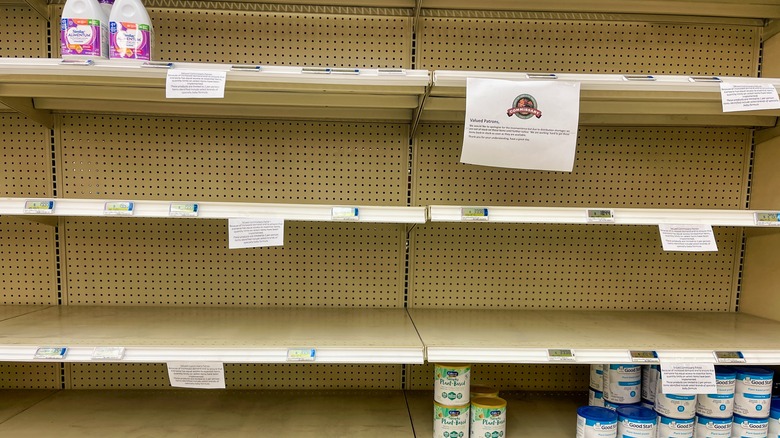What A Second Baby Formula Recall Means For New Mothers Across The US
Solely breastfeeding their babies may not be an option for every mother, and the replacement or the supplement is found with baby formula. Baby formula, which Chrissy Teigen wants to help normalize, was first patented in the 1860s by a chemist who created a liquid and powdered form of cow's milk, potassium bicarbonate, wheat, and malt flour, per The Journal of Perinatal Education. Baby formula has now grown into a multi-billion dollar business, according to Globe News Wire, but in 2022, the U.S. faced a devastating baby formula shortage.
Abbott, then the largest manufacturer of baby formula, shut down one of its plants after bacterial contamination — said contamination led to the death of two babies, and the formula was subsequently recalled, per The New York Times. People started stocking up on formula if they could, but within about three months, supplies were down by over 40% and President Joe Biden authorized the Defense Protection Act to help boost production, according to CNBC. In July 2022, the Abbott plant reopened, but the impacts are still being felt in some parts of the country. Now, there's another baby formula recall from Abbott. Here's what you need to know.
The recall impacts a smaller number of products
If you buy Abbott baby formula products, here are the items you need to look out for. The current Abbott baby formula recall was issued on October 14, and according to their website, it covers "certain lots of 2 fluid ounce/59 milliliter bottles of Ready-to-Feed liquid products for infants and children, including the brands Similac® Pro-Total ComfortTM, Similac® 360 Total Care®, Similac 360 Total Care Sensitive, Similac® Special Care® 24, Similac Stage 1, Similac® NeoSure®, Similac Water (Sterilized) and Pedialyte Electrolyte Solution." It covers products that were produced in the Columbus, Ohio plant, and if you want to check the lot number, you can go to this website to see if the formula you have is impacted by the recall.
The issue is that less than 1% of the caps in those batches may not have been entirely sealed, which could lead to the product spoiling, and consuming spoiled product could lead to vomiting or diarrhea. In their statement, they said this would not have an impact on the country's supply of baby formula.

